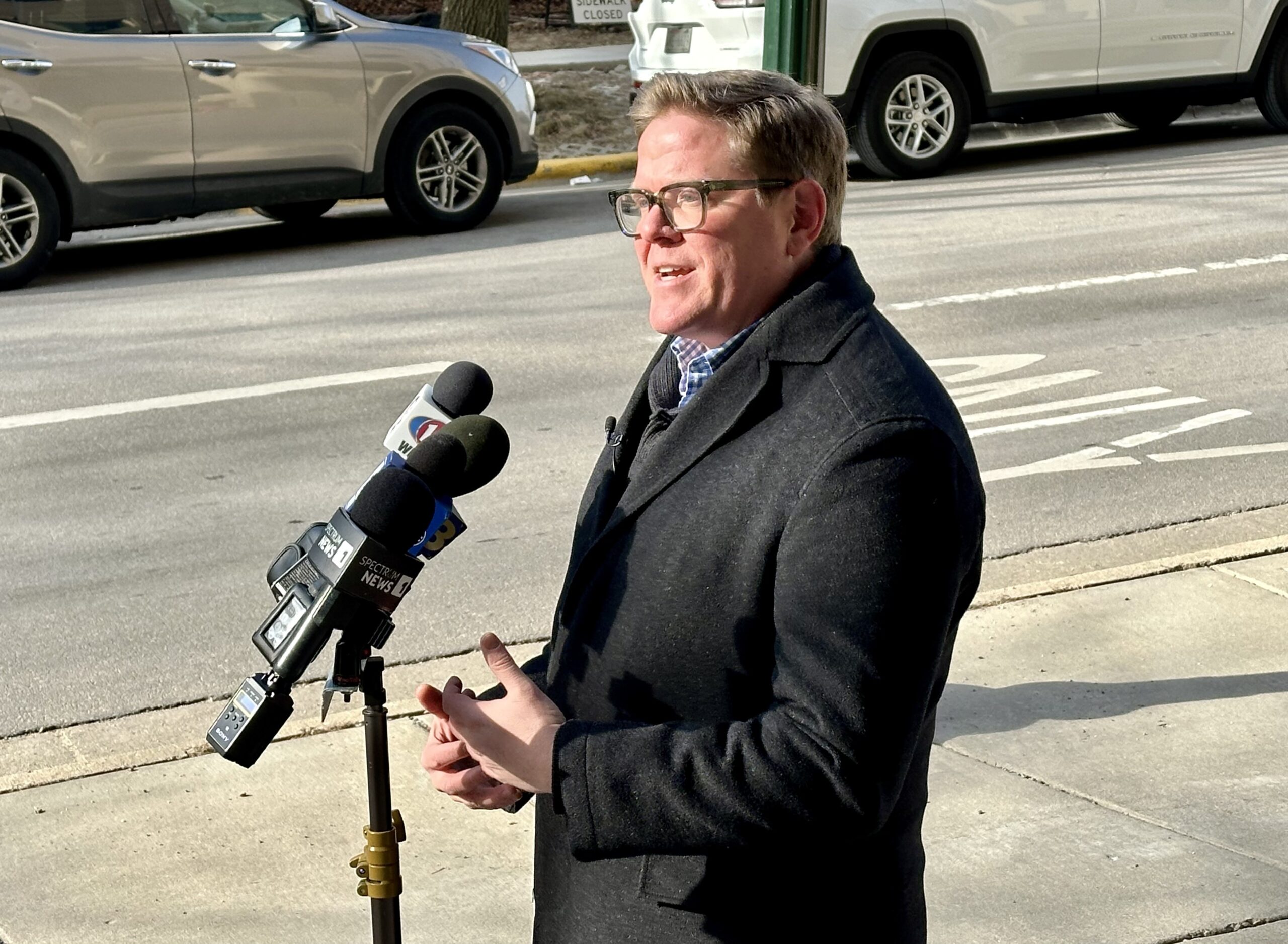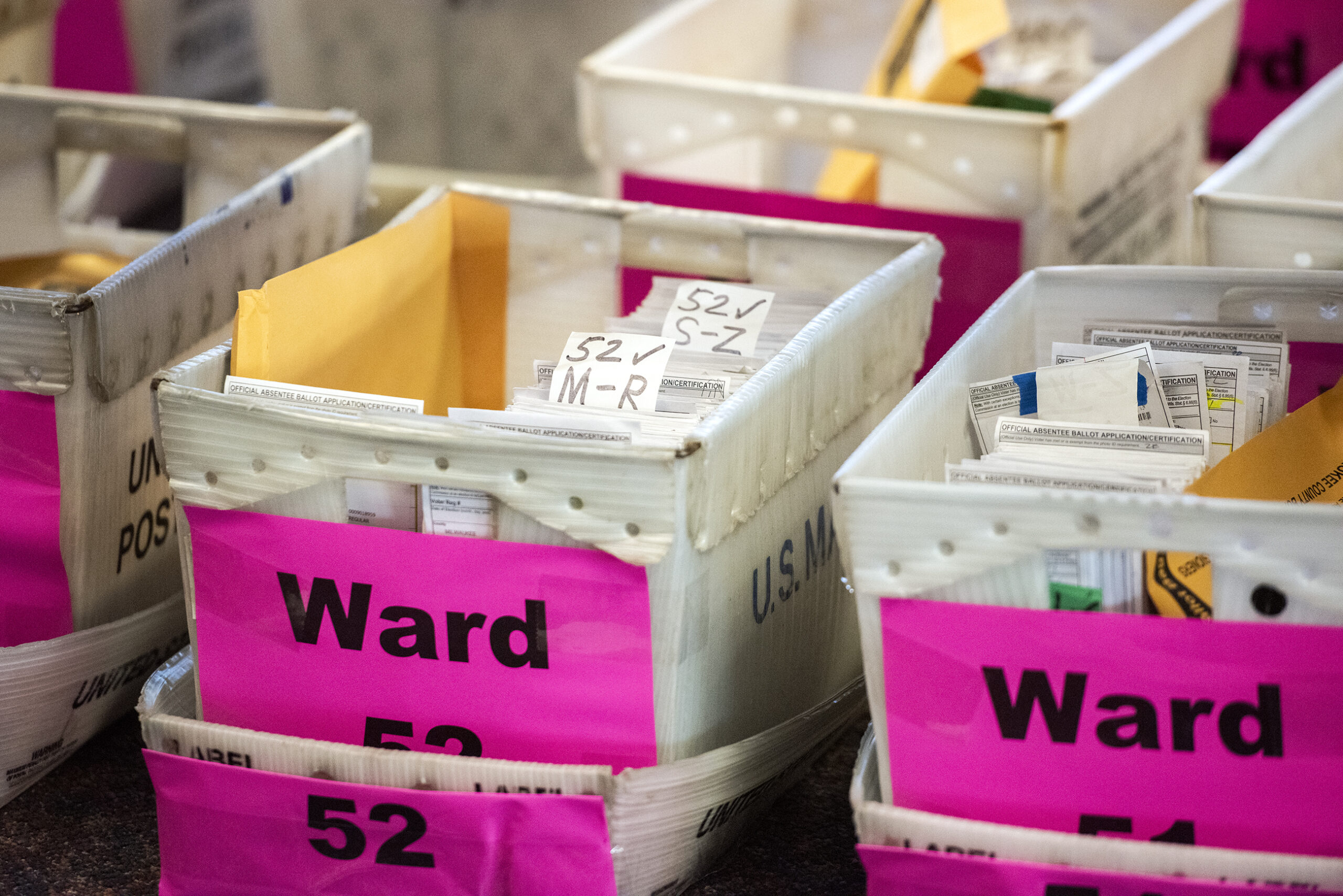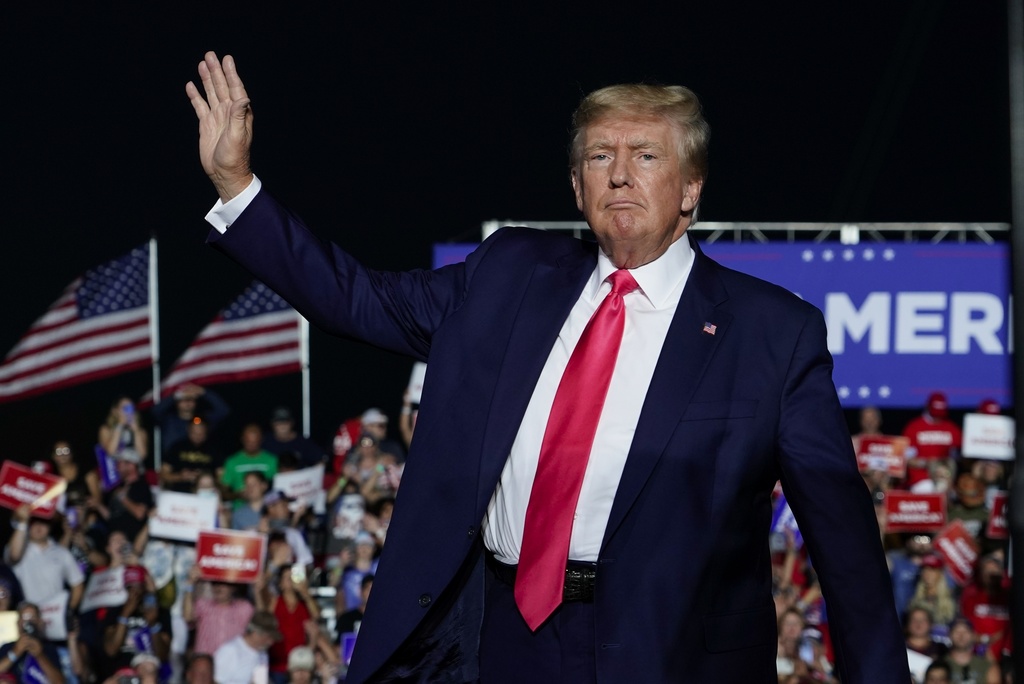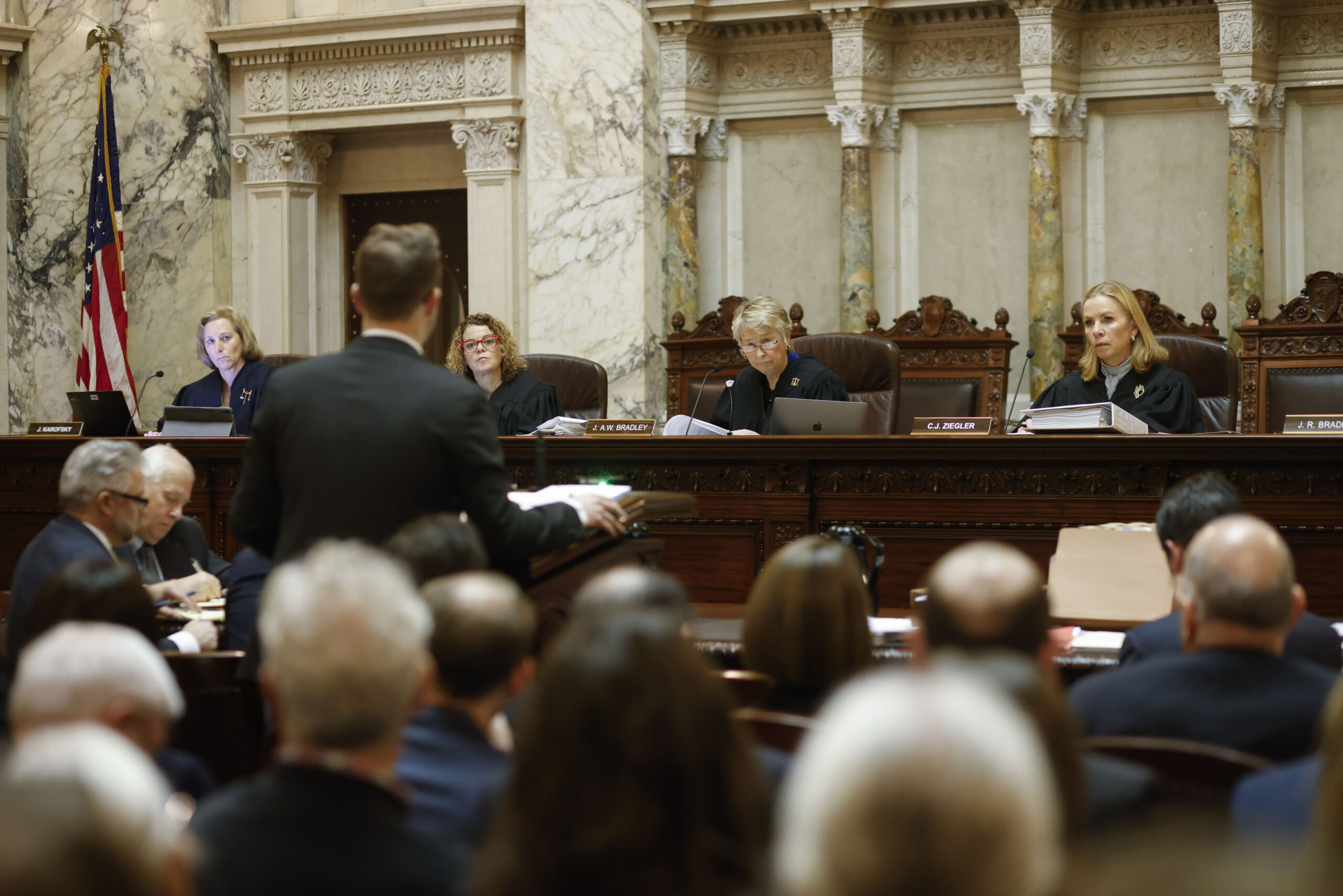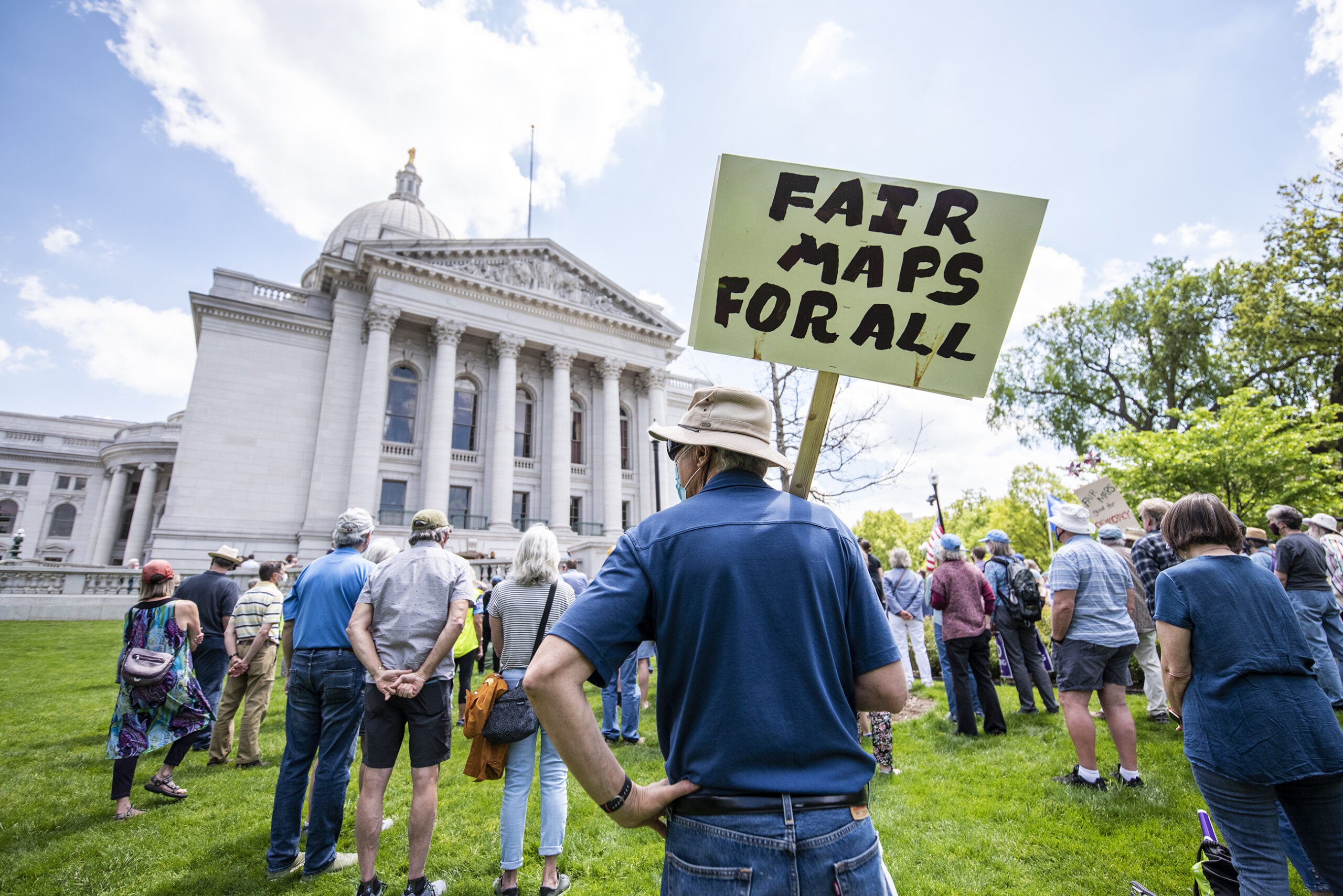A program in Ozaukee County aims to improve literacy among inmates and provide resources for them to take the GED, learn financial planning and try their hand at creating art. We discuss the importance of these programs for inmates and the broader community. We also learn how comedy can help us become better listeners, and we talk to a political scientist and presidential scholar about the consequences of the unexpected death of Supreme Court Justice Antonin Scalia.
Featured in this Show
-
Scalia's Death Leaves Obama, Republican Leaders At A Standoff In Nomination Process
A political battle is mounting in Washington, D.C., as President Barack Obama and Republican congressional leaders appear to be at an impasse to replace U.S. Supreme Court Justice Antonin Scalia’s spot on the bench.
Scalia was found dead on Saturday in his room at a hunting resort in Texas. He often embraced an original intent theory of constitutional law, often to progress conservative rulings. A New Yorker writer called his famously witty dissents “the jurisprudential equivalent of smashing a guitar onstage.”
Scalia’s unexpected death has raised the stakes in an already intense presidential race. Republicans are hopeful to control all three branches of government if their nominee wins the White House, while Democrats hope to maintain at least a balancing force.
That’s led to some political posturing from both sides of the aisle. Senate Majority Leader Mitch McConnell and other Republican leaders have called on Obama to refrain from nominating a candidate to the nation’s high court as the president winds down his final year in office.
Other Republicans have vowed to block whomever is nominated, arguing that lifetime judicial appointments shouldn’t be made during a presidential election year.
Obama, however, doesn’t see it that way. At a news conference on Tuesday, the president once again offered condolences to the Scalia family before saying he will nominate someone to replace him.
“The Constitution is pretty clear about what’s supposed to happen now,” Obama said. “When there is a vacancy on the Supreme Court, the president of the United States is to nominate someone. The Senate is to consider that nomination. And either they disapprove of that nominee or that nominee is elevated to the Supreme Court. Historically, this has not been viewed as a question.”
Barbara Perry, a professor of political science and director of presidential studies at the University of Virginia, said it’s unusual for a Supreme Court justice to die while still in office and it’s even more rare for it to happen during a presidential race. She said justices typically step down as they fall ill.
However, she added, “We are not in uncharted waters for presidents nominating successfully members of the U.S. Supreme Court in the final years of their terms.”
“There have been 112 successful nominations to the U.S. Supreme Court, and the fact of the matter is 21 justices took their seats in the last year of a presidency,” said Perry. “That means that 16 presidents have filled a seat in a final year, including several who had lost for re-election or had decided to step out of the presidency.”
In fact, she said, on the last day of Andrew Jackson’s presidency, he nominated two candidates to the Supreme Court, one successfully. George Washington, the nation’s first president, also filled a vacancy in his final year in office.
Perry said the process started becoming more contentious in the 1980s as special interest groups and a flood of money led to hyper-partisan battles in the Senate approval process. It’s a tradition that carries over to today, she said.
While it might appear as dysfunctional, Perry said this kind of system of checks and balances helps preserve U.S. democracy and the vision laid out by the nation’s founders.
The Supreme Court will rule in the meantime with eight justices. Should a decision reach a 4-4 tie, the lower court’s ruling will remain in place but not serve as a national precedent.
-
Comedian Coaches How To Better Communicate Using Improv Principles
A comedian is taking what she learned from the legendary improv comedy group Second City in Chicago off the stage and into the real world to help people learn to be better communicators.
“When I went to Second City to train, I really thought I’d be funnier or wittier — which maybe happened, I don’t know — but it actually changed the way I approach life. And once I used that daily, I was able to see how people communicate and also how to improve communication,” said Liysa Callsen.
Callsen said improv comedy taught her four basic principles that not only help deliver laughs but better understanding. She now runs classes and seminars to help businesses improve communication and leadership using the same basic building blocks of improv comedy.
Through a series of games that one might see on the TV show “Whose Line Is It Anyway?” Callsen preaches four basic rules for elevating communication:
Say yes: The only real rule in improv comedy is that the actors must accept and acknowledge the invented scene and roll with it. In real life, Callsen said listeners should do the same by acknowledging what their hearing.
Say yes, and: Beyond acknowledgment, listeners should validate what’s being said to communicate the message is heard and received.
Always support one another: The communication process is open for infinite interpretations and thus desputes. This rule ensures that everyone understands they’re on the same team and striving for a common goal. It’s works better when partners collaborate together.
Take risks: In the comedy world, that means going to unimaginable places that might make actors uncomfortable. In that same sense, people shouldn’t pass judgement in order to talk about serious issues.
-
How You Can Learn To Be A Better Listener Through Humor
A comedian teaches us how to use the principles of improv and humor to become a better communicator.
-
Ozaukee County Project Brings Literacy To Jail Inmates
An effort in Ozaukee County brings literacy services to jail inmates in the area; an instructor shares the mission, and how it changes the lives of students.
-
The Political And Legal Fallout Of Supreme Court Justice Antonin Scalia's Death
The unexpected death of Supreme Court Justice Antonin Scalia will have consequences in Congress, in the presidential election, and on legal cases being considered by the Supreme Court, like immigration. We talk to a political scientist and presidential scholar about the legal and political fallout of Justice Scalia’s death.
Episode Credits
- Rob Ferrett Host
- Veronica Rueckert Host
- Amanda Magnus Producer
- Scottie Lee Meyers Producer
- Rob Ferrett Producer
- Barbara Perry Guest
- Liysa Callsen Guest
- Patty Puccinelli Guest
Wisconsin Public Radio, © Copyright 2024, Board of Regents of the University of Wisconsin System and Wisconsin Educational Communications Board.

